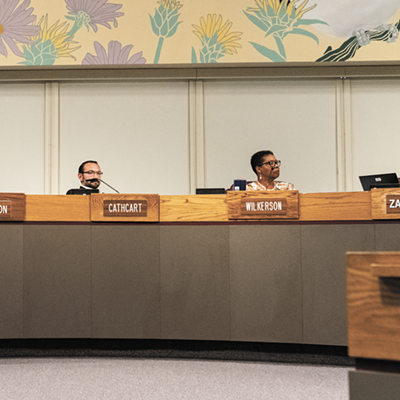To claim that the ancient Mayan culture developed a nuanced conception of time is like saying the modern stock market is a complicated financial instrument.
The Mayan calendars cover a multi-faceted collection of linear and cyclical measurements that go back almost 3,000 years as well as forward in time — however far you care to extend them. Mayan astronomer-priests reckoned lunar, solar, planetary cycles and events, forecast eclipses, dealt with the planting of crops as well as auguries, deities, and minor and major events of life in a calibrated set of calendars and almanacs of remarkable accuracy.
There are Mayan calendars for humans, for the gods, for crops, for animals, even for insects. Amazing stuff, when you get into it. And it makes our namby-pamby, 12-month creation look like kindergarten art compared to Michelangelo.
That doesn’t mean the Mayans predicted that the world would come to an abrupt halt in 2012, which is something some people passionately believe. That notion is based on a misunderstanding of the Mayan Long Count calendar, which simply concludes one era and begins another, the next b’ak’tun, in December of 2012. That’s it. Actually, according to Mayan tradition, the fact that we’ve made it through a cycle of the Long Count is cause for great celebration — the ultimate New Year’s bash. But just like the Y2K silliness, the notion of a Mayan apocalypse feeds on the American propensity to grab hold of any rationale to believe the worst and dive into survival mode.
Wacky as the 2012 phobia is, the tendency to fall prey to this repeated world-ending cycle reveals something about our understanding of how wrong we’ve gone. In that regard, the Mayans are onto something. Perhaps the end of this Long Count era is as good an excuse as any to take stock and start the new cycle on a more reasonable footing.
Most of us realize that radical change is coming, if not under way. The global economic structure seems at the brink of collapse. Entire countries and massive corporations hang on by dint of humongous bailouts. Our lifestyle is supported by an unsustainable juggernaut of cheap energy, subsidized food and the flawed paradigm of limitless growth. We’re ripping up tar sand deposits in Alberta at an ungodly cost to the environment and calling it our energy strategy, and fracking shale layers far underground with a stew of high-pressure water and chemicals and calling it our salvation. A simmering nuclear disaster continues in Japan. Millions of people can’t find work.
Then there’s the planet we live on, delivering weekly, not-so-subtle hints of payback. Maybe there is an apocalypse around that corner. It sure feels like it if you’re in the path of a swarm of tornadoes in Alabama, or a roaring fire in Arizona, or the flooding in the Mississippi watershed.
Our business-as-usual, don’t-worry-we’ll-figure-something-out strategy has been to stay one step ahead of the consequences by building levees and dams, engineering super vegetables, fabricating fuels, broadcasting pesticides, coming up with the latest vaccine and throwing technology willy-nilly at problems — all “solutions” that lead to unintended consequences of their own. And the whole spaceship of humanity is strained to bursting by the sheer weight of a population that requires the resources of roughly 1.5 planet Earths just to tread water.
Houston, we have a problem.
So maybe the Mayan calendar and its 2012 cusp-of-change prediction is our chance to pay attention. At the risk of sounding oh-so-New-Age, maybe it’s high time for a new paradigm. Maybe, instead of calculating success by the accumulation of toys and staving off catastrophe with the latest techweenie Band-Aid, we might strive for alternate goals — things like taking time off, reading more books, playing catch with the kids, counting time as wealth, doing some gardening, enjoying friends, sitting quietly in the woods, paddling canoes, riding bikes.
Living smaller, and happier. Maybe respect could become a fundamental value — respect for each other, for the rest of our biological neighborhood, for Mother Earth. Imagine.
What if 2012 is not The End but The Beginning? What will you be doing?
Alan Kesselheim is a contributor to Writers on the Range, a service of High Country News (hcn.org), where this column first appeared. He lives in Bozeman, Mont.




















